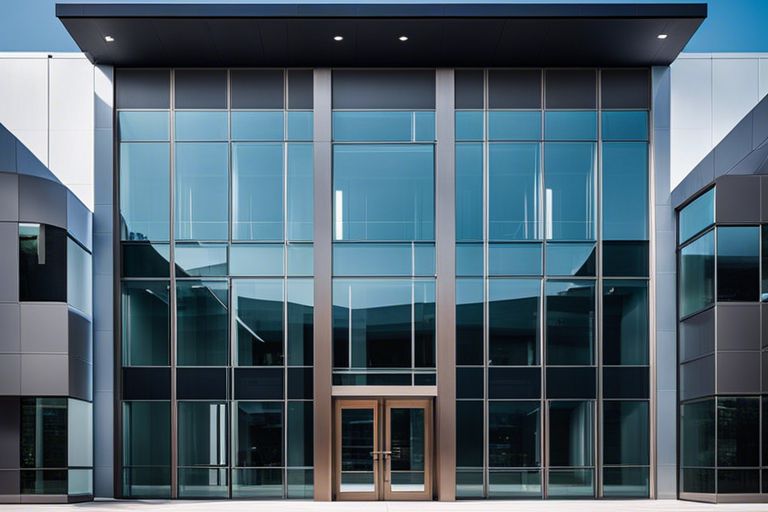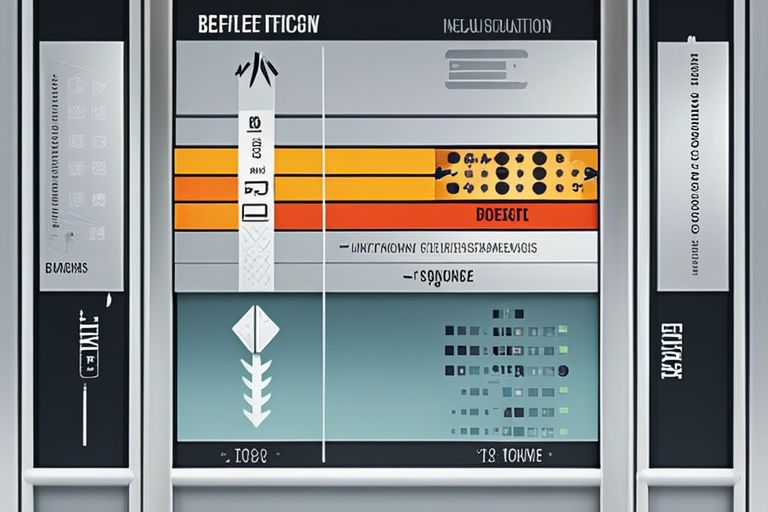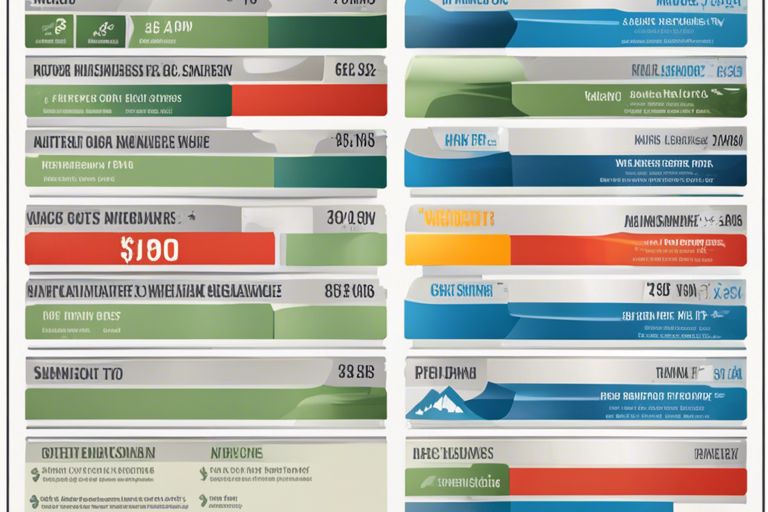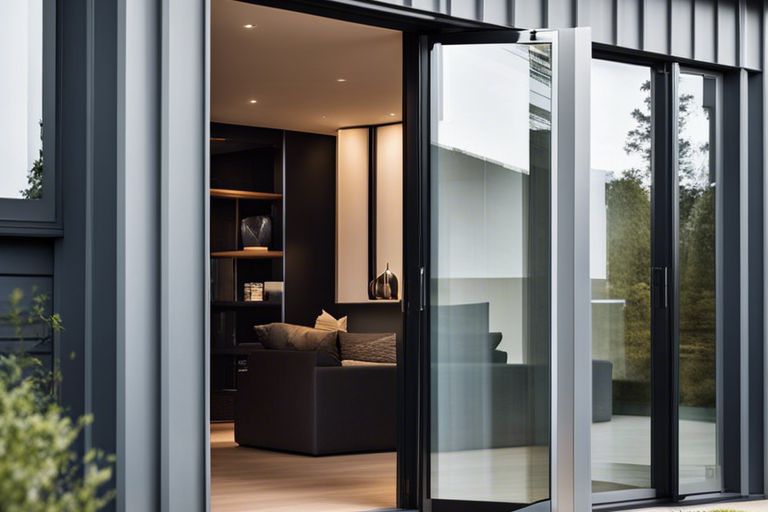Curious about which material is the most cost-effective for your windows? Look no further than aluminium. When it comes to durability, energy efficiency, and long-term cost savings, aluminium windows are the clear winner compared to other materials like wood or vinyl. Not only do they require minimal maintenance, but they also offer exceptional strength and security for your home. In addition, aluminium windows are highly resistant to weathering and corrosion, making them a smart investment for any homeowner. While the upfront cost may be slightly higher than other materials, the long-term benefits and savings make aluminium windows the optimal choice for a cost-effective and high-performance window solution.
Key Takeaways:
- Longevity: Aluminium windows have a longer lifespan compared to other materials, often lasting up to 40 years with minimal maintenance.
- Low maintenance: They are easy to clean and maintain, making them a cost-effective option in the long run.
- Energy efficiency: Aluminium windows provide excellent insulation, resulting in lower energy bills and long-term cost savings.
- Customization options: They offer a wide range of design and color options, allowing for versatility in architectural styles and preferences.
- Durability: They are resistant to rust, corrosion, and weather damage, making them suitable for various climates and environments.
- Security: Aluminium windows provide enhanced security features, offering peace of mind for homeowners and commercial property owners.
- Environmental impact: Aluminium is highly sustainable and recyclable, making it an eco-friendly choice for windows and contributing to a greener environment.
Types of Window Materials
If you are considering replacement or new installation of windows, it’s crucial to weigh your options carefully and choose the right material for the job. The type of material you select will impact the cost, durability, and energy efficiency of your windows. There are several materials to choose from including aluminium, vinyl, wood, and fiberglass.
| Material | Characteristics |
| Aluminium | Durable, low maintenance, energy-efficient |
| Vinyl | Affordable, great insulator, low maintenance |
| Wood | Natural, traditional look, high maintenance |
| Fiberglass | Durable, low maintenance, energy-efficient |
Aluminium Windows
Aluminium windows are known for their durability and energy efficiency. They require low maintenance, are weather-resistant, and can last for decades. These windows are also recyclable, making them an eco-friendly choice. However, aluminium windows may have higher initial cost compared to other materials.
Vinyl Windows
Vinyl windows are affordable and provide excellent insulation for your home. They require minimal upkeep and come in a variety of styles and colors. However, they may not be as durable as aluminium or fiberglass windows.
Wooden Windows
Wooden windows offer a natural, traditional look that can enhance the aesthetics of your home. However, they require regular maintenance to prevent rot and decay, making them a high-maintenance option.
Fiberglass Windows
Fiberglass windows are durable, low maintenance, and offer excellent energy efficiency. They are also resistant to warping and rotting. However, they often come with a higher price tag compared to other materials.
Factors Affecting Cost-Effectiveness
Unlike the initial cost of the aluminium windows, several factors can affect their overall cost-effectiveness. It’s essential to consider these factors in order to make an informed decision about which material is the most cost-effective for your specific situation.
- Material Costs
- Energy Efficiency
- Maintenance and Longevity
- Installation Complexity
Any decision on window materials should consider these factors in order to ensure long-term satisfaction and value for your investment.
Material Costs
In terms of material costs, aluminium windows can be a cost-effective option compared to other materials. While the initial cost of aluminium may be higher, its durability and low maintenance requirements make it a wise long-term investment. When considering the material costs, it’s important to factor in the longevity and durability of the material, as these aspects can greatly impact the overall cost-effectiveness of the windows.
Energy Efficiency
When it comes to energy efficiency, aluminium windows have the potential to be highly cost-effective. Modern aluminium window designs incorporate thermal breaks and other energy-saving features, making them a competitive option in terms of energy efficiency. By reducing heat loss and minimizing energy usage for heating and cooling, aluminium windows can contribute to long-term cost savings on your energy bills.
Maintenance and Longevity
The maintenance and longevity of aluminium windows are key factors in determining their cost-effectiveness. Aluminium is a durable and low-maintenance material that does not require frequent painting or sealing, resulting in long-term cost savings. Additionally, the longevity of aluminium windows means that you will not have to replace them as often as other types of windows, adding to their overall cost-effectiveness.
Installation Complexity
When considering the overall cost-effectiveness of window materials, you should also take into account the installation complexity. Aluminium windows are relatively easy to install, which can result in lower installation costs compared to other materials. The simplicity of the installation process can help you save both time and money, making aluminium windows a cost-effective choice for your home or building.
Step-by-Step Guide to Evaluating Cost-Effectiveness
Not all windows are created equal when it comes to cost-effectiveness. To make an informed decision, you need to carefully evaluate the initial investment, energy savings, maintenance costs, lifespan, and replacement costs of different window materials.
| Factors to Consider | How to Evaluate |
| Initial Investment | Calculate the upfront cost of purchasing and installing the windows |
| Energy Savings | Evaluate the energy efficiency and potential long-term savings on your utility bills |
| Maintenance Costs | Understand the maintenance requirements and associated expenses over time |
| Lifespan and Replacement Costs | Project the durability and potential replacement expenses in the future |
Calculating Initial Investment
When evaluating the cost-effectiveness of different window materials, it’s important to consider the initial investment. This includes not only the cost of purchasing the windows themselves, but also the expenses related to installation. Keep in mind that higher-quality windows made from materials like aluminum may have a higher upfront cost, but they can offer significant long-term benefits in terms of energy savings and durability.
Estimating Energy Savings
Another crucial factor in evaluating cost-effectiveness is estimating the potential energy savings associated with different window materials. Windows made from energy-efficient materials like aluminum can help you reduce your heating and cooling costs over time. By choosing windows with a high energy performance rating, you can lower your carbon footprint and contribute to a more sustainable future for your home.
Understanding Maintenance Costs
Consider the maintenance requirements and associated costs when comparing the cost-effectiveness of window materials. Low-maintenance materials like aluminum can save you time and money in the long run, as they typically require minimal upkeep and are highly resistant to rot, decay, and corrosion. This can result in significant cost savings over the lifespan of your windows.
Projecting Lifespan and Replacement Costs
When evaluating the cost-effectiveness of window materials, it’s important to project the lifespan and potential replacement costs. High-quality materials like aluminum are known for their durability and longevity, which can result in lower replacement expenses over time. Investing in windows that are built to last can ultimately save you money and provide peace of mind knowing that they will withstand the test of time.
By carefully considering these factors, you can make an informed decision about the cost-effectiveness of aluminum windows compared to other materials. Remember, the initial investment, energy savings, maintenance costs, and lifespan all play a crucial role in determining the long-term value of your window investment.
Pros and Cons of Aluminium Windows
Despite the many benefits of aluminium windows, there are also some drawbacks to consider. Here, we will break down the pros and cons of aluminium windows to help you make an informed decision for your home.
| Pros | Cons |
| Durable and long-lasting | Thermal conductivity |
| Sleek and modern design | Corrosion in coastal areas |
| Low maintenance | Condensation in extreme weather |
| Energy efficient | Impact on environment |
| Recyclable | Cost |
| Weather resistant | Less design flexibility |
| Security features | Noisy in heavy rain |
| Easy to customize | Potential for condensation |
| Sound insulation | Electrolytic reactions |
| Fire resistant | Breakage in extreme weather |
You can find more detailed information on the pros and cons of aluminium windows in this comprehensive article on Modern Window Designs Aluminum Windows vs Steel.
Advantages of Aluminium Windows
Aluminium windows are known for their durability and long-lasting performance. They are also low maintenance and offer excellent energy efficiency, helping you save on energy costs in the long run.
Disadvantages of Aluminium Windows
While aluminium windows have many advantages, they also come with some drawbacks. Thermal conductivity, condensation in extreme weather, and potential for electrolytic reactions are important factors to consider when choosing aluminium windows for your home.
Tips for Making the Best Investment
After deciding to invest in aluminium windows, there are several key factors you need to consider to ensure you make the best investment for your specific needs. Here are some tips to help you make an informed decision:
- Assess your specific needs – Consider the style, size, and functionality of the windows that would best suit your home.
- Consider the climate and location – Evaluate the weather conditions and overall location of your home to determine the best material for your windows.
- Compare long-term value – Look at the cost and benefits of different window materials over the long term.
- Seek professional advice – Consult with experienced professionals to get expert recommendations and insights.
Any decision you make should take into consideration these important factors to ensure you are making the best investment for your home.
Assessing Your Specific Needs
When assessing your specific needs, consider the style of your home and the functionality you require from your windows. Are you looking for a modern, sleek design, or do you prefer a more traditional look? Additionally, think about the size and placement of your windows to ensure they provide the right amount of natural light and ventilation for your living spaces.
Considering Climate and Location
It’s important to consider the climate and location of your home when choosing window materials. If you live in an area with extreme weather conditions, such as frequent storms or high humidity, you’ll need windows that can withstand these elements. Additionally, if you live in a noisy urban area, you may want to consider soundproofing options for your windows.
Comparing Long-Term Value
When comparing long-term value, it’s essential to weigh the initial cost of different window materials against their durability, energy efficiency, and maintenance requirements. Take into account factors such as insulation properties, potential for heat gain or loss, and the longevity of the material in different climate conditions.
| Factors to consider | Impact on long-term value |
| Insulation properties | Significantly impacts energy efficiency and heating/cooling costs. |
| Maintenance requirements | Affects overall cost of ownership and longevity of the windows. |
| Durability | Long-lasting materials can reduce replacement and repair costs over time. |
Seeking Professional Advice
Consulting with experienced professionals in the window industry can provide you with valuable insights and recommendations based on your specific needs. Professionals can offer expert advice on choosing the right window material, style, and features that best fit your home and budget. Their expertise can help you avoid common pitfalls and ensure the best outcome for your window investment.

The cost-effectiveness of aluminium windows compared to other materials
Drawing together the various factors such as longevity, durability, energy efficiency, and maintenance costs, it is clear that aluminium windows offer exceptional cost-effectiveness compared to other materials such as wood or vinyl. Not only are aluminium windows highly durable and long-lasting, but they also require minimal maintenance over their lifespan, saving you money in the long run. Additionally, their energy efficiency can lead to reduced heating and cooling costs, further adding to their cost-effectiveness. When considering the overall lifetime cost, aluminium windows clearly emerge as the most cost-effective option for your home or building.
FAQ
Q: Are aluminium windows cost-effective compared to other materials?
A: Yes, aluminium windows are a cost-effective option when compared to other materials such as wood or vinyl. They offer a balance of affordability and longevity, making them a popular choice for many homeowners.
Q: Do aluminium windows require a lot of maintenance?
A: No, aluminium windows are low-maintenance. They are resistant to rust, rot, and corrosion, and can withstand harsh weather conditions without deteriorating. Occasional cleaning and lubrication of hinges are usually all that’s needed to keep them in good condition.
Q: How long do aluminium windows typically last?
A: Aluminium windows have a long lifespan, often lasting 20-30 years or more with proper care. Their durability makes them a wise investment for homeowners looking for a window option that will stand the test of time.
Q: Are aluminium windows energy-efficient?
A: Yes, aluminium windows can be energy-efficient when properly insulated and installed. They offer excellent thermal performance and can help reduce heat loss in the home, potentially leading to lower energy costs over time.
Q: Are aluminium windows environmentally friendly?
A: Yes, aluminium is a highly recyclable material, making aluminium windows an environmentally friendly choice. Additionally, the energy required to produce aluminium is relatively low compared to other materials, further contributing to its sustainability.
Q: Can aluminium windows enhance the aesthetic appeal of a home?
A: Absolutely. Aluminium windows come in a variety of styles and finishes, allowing homeowners to choose options that complement their home’s architectural style. Whether traditional or modern, aluminium windows can enhance the overall aesthetic appeal of a property.
Q: Are there any disadvantages to choosing aluminium windows over other materials?
A: While aluminium windows offer numerous benefits, they do have some drawbacks. They are not as insulating as other materials, which may impact their energy efficiency in certain climates. Additionally, they may have a higher initial cost compared to some other materials. However, their long-term durability can offset these potential downsides.






